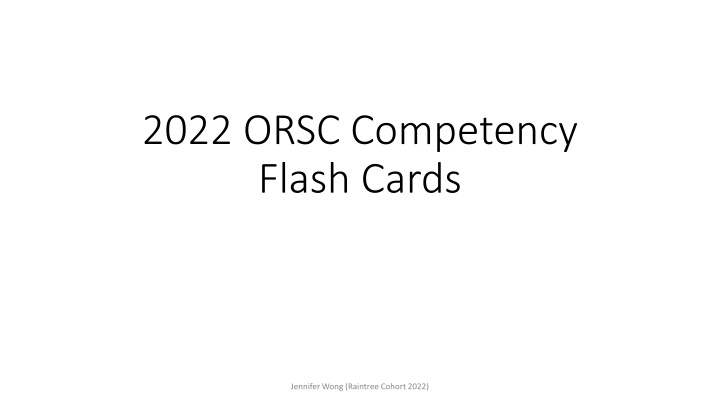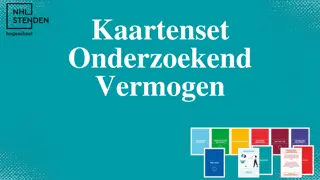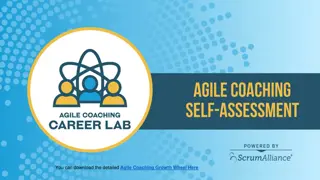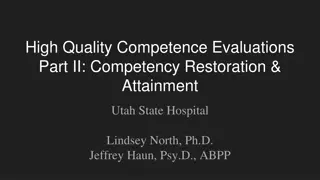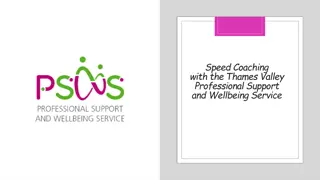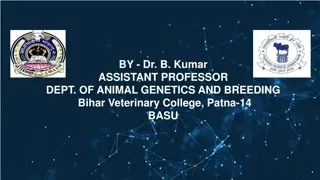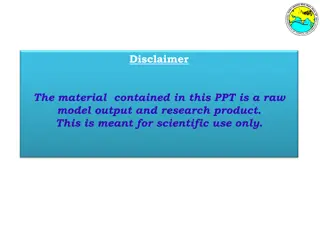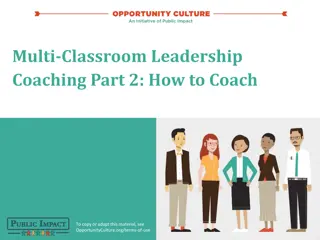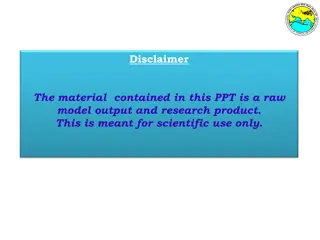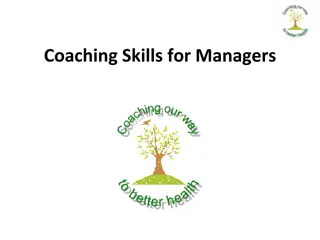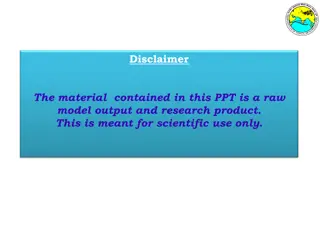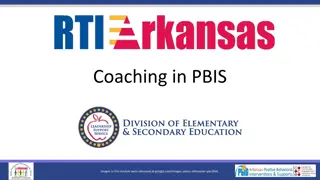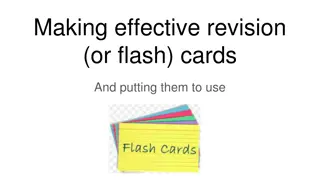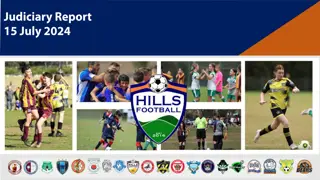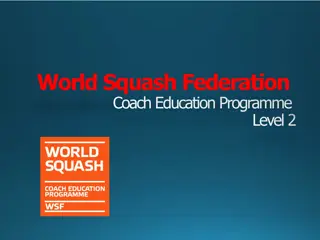2022 ORSC Competency Flash Cards for Systemic Coaching
These flash cards provide insights into key competencies for systemic coaching, such as holding the system as the client, revealing the system to itself, and working with emotions in a coaching setting. The cards emphasize the importance of focusing on the relationship between individuals, recognizing the system's wisdom, and promoting transparency to facilitate growth and change within the system. By incorporating these practices, coaches can enhance their effectiveness in guiding systemic transformations.
Download Presentation

Please find below an Image/Link to download the presentation.
The content on the website is provided AS IS for your information and personal use only. It may not be sold, licensed, or shared on other websites without obtaining consent from the author.If you encounter any issues during the download, it is possible that the publisher has removed the file from their server.
You are allowed to download the files provided on this website for personal or commercial use, subject to the condition that they are used lawfully. All files are the property of their respective owners.
The content on the website is provided AS IS for your information and personal use only. It may not be sold, licensed, or shared on other websites without obtaining consent from the author.
E N D
Presentation Transcript
2022 ORSC Competency Flash Cards Jennifer Wong (Raintree Cohort 2022)
TEMPLATE: Title of Competency Brief description of competency. Outcome of competency. Suggestions for how the competency may be demonstrated. Jennifer Wong (Raintree Cohort 2022)
Holds the System as the Client The coach focuses on the whole system, the relationship between Outcome: The coach should clearly and consistently reference and focus on the system (the third entity between the individuals). between the individuals, rather than solely on the individuals. What do the two of you think about _____? What does the relationship/organisation/team want? What does the relationship/organisation/team need? What is the impact on the relationship? We will coach using the systems approach, which is less about the individuals and more about the relationship between the two of you Joe, when you say that, you are expressing one need of the relationship and Sally, your position is expressing another need of the relationship. Both voices are important. Jennifer Wong (Raintree Cohort 2022)
Holds the System as Naturally Intelligent and Creative The coach holds the system as having its own wisdom and supports the system to find its own answers. The coach does not hold back from addressing difficult issues or dealing with conflict because conflict indicates that change is needed and something new is trying to happen. Outcome: The coach is comfortable in staying with the emotional arc of the coaching (whether positive or negative). What are we avoiding not talking about stepping over? I m noticing some toxicity showing up in the conversation. What do you think the next step should be? It is important to stay with this edgy place. What do you think needs to happen next? We only have 5 minutes left in the session and I want to acknowledge there is a lot of anger (fear, intimacy, etc) in the room. Can we get back to this on the next call? What will create safety until then? What is the insight here? Jennifer Wong (Raintree Cohort 2022)
Reveals the System to itself The coach is transparent about what they see and holds up a mirror to the system so that it can grow. The coach should regularly interject what they see is going on in the session. Outcome: The clients gain new insights, understanding and behaviour change. Once the system sees itself it can self-regulate. What you have in common is a desire to What did you learn from doing that activity? What do you think is trying to happen? There is so much stress in the team right now that you are having breakdowns in communication. What are we learning? What is the impact of that? I notice some people withdrew when you said that. Jennifer Wong (Raintree Cohort 2022)
Reads and Works with the Emotional Field The coach should closely track shifts in the emotional tone of the dialogue and either reflect back to the clients or ask them about it briefly. Outcome: This is a cardinal skill of the systems coach and ties into many of the other competencies. I can feel the sadness between you. What are you noticing? I can feel the tension. What are you aware of? Wow, listen to your laughter! What s here? Weather report You both sound strained. Something just happened. What are you feeling right now? I hear the laughter. You seemed relaxed. As a team, what else is here in this space? I notice most people have cameras off, is this normal? What s in the silence? Jennifer Wong (Raintree Cohort 2022)
Practices Good Ethics May show up as an absence of any ethical problem and help heighten awareness of ethical issues in systems coaching, including rank and privilege that might make it difficult to hold the clients agenda.. Coaches should be familiar with ICF Ethics and Standards. Outcome: The coach identifies possible ethical considerations, addresses them promptly and designs with the system to avoid violations. The coach identifies possible ethical considerations, addresses them promptly and designs with the system to avoid violations. Is there a red flag and how did you handle it, e.g. triangulating, active mental illness, drug/alcohol abuse, physical or verbal abuse, gross imbalance of power that cannot be designed around. Must address these red flags or refer to a more appropriate helping profession. I just want to acknowledge that I am your boss as well as acting in a coach role right now. This dual role could impact our work together. Let s talk about it. I am going to take off my coaching hat and wear my ___ hat right now because Jennifer Wong (Raintree Cohort 2022)
Meets ICF Coaching Practice Competencies Using coaching skills such as powerful questions, curiosity, calling forth, acknowledgement, etc Outcome: A coaching plan, a clear agenda set by the client, accountability and forwarding the action. Ask client for agenda: What do you want to focus on today? What s important about that? What would a good outcome look like by the end of today s session? At the end: Did we meet your outcome for today. Seek permission for what you are going to do: Since you ve said you would like to have more constructive conflict, shall we work on helping you get better aligned? Forwarding the action: What s one thing you will do differently this week as a result of this session? What action will you take to move forward from here? How will you keep yourself accountable? Jennifer Wong (Raintree Cohort 2022)
Fluidly navigates at least 2 of the 3 levels of Reality Systems need to be fluid in their movement between the three levels of reality in order to be sustainable. Outcome: Coach assists this fluidity through educating the clients about the levels, monitoring which levels the system is operating in, and shifting the levels as necessary. Essence (metaphor, gesture, sound, creating team name) Let s get a name that really gets the essence of this experience in your relationship. Dreaming (hopes and fears): We seem to be stuck here, let s move to possibilities for a moment. Consensus Reality(actions, accountability, agreements, problem solving): Ok, that was some great dreaming, now let s ground it in reality. How will you use this new energy in your life? Jennifer Wong (Raintree Cohort 2022)
Comes from/works with MetaSkills A MetaSkill is an attitude, philosophy or stance with which something is done. Outcome: A clear intention to shape the space and then must demonstrate that MetaSkill through voice, body, and energy I want to invoke some gentleness right now. I want to insert some lightness now. I want to sprinkle some positivity here. Jennifer Wong (Raintree Cohort 2022)
Educates/Trains the Clients Provides context for the client to understand what is happening in the session, and gives the clients tools to further their coaching agenda. They interject training in a way that preserves or enhances the flow of the session and the clients benefit from the training. Outcome: Provides context, tool training, information, and normalizing as needed. Systems approach to coaching Set the context: o Here is what we are doing. o Here is why we are doing it. o Here is what you will get out of it. o Ask for permission: Is this is going to work for you? Revealing aspects of the client and giving them language for it such as The Four Team Toxins . Giving data to support practice: Research shows many couples experience a drop in marital satisfaction after having a baby. Gottman states that 69% of all relationship issues are perpetual, they are never going to be solved. Of course you are both feeling angry about what happened, anyone would. Jennifer Wong (Raintree Cohort 2022)
Champions Deep Democracy Critical skill that reveals the voice of the system. Unless all voices are heard the reality of the system is not fully represented. Outcome: Supports marginalized voices or feelings to be heard. Encourages everyone to speak in the system and aware who has not spoken. Coach is confident in eliciting difficult or challenging feelings and does not marginalize any emotions. I ve heard a lot of great ideas and there are some people who haven t spoken yet, let s hear more from those voices now. Coach champions the expression of marginalized voices or feelings. Coach consciously designs this with the rest of the system: Alice I am now going to spend some time talking with Jose and I promise I will get back to you. Jennifer Wong (Raintree Cohort 2022)
References CRR Global (2021) 03 ORSC Competency Definitions and Guidelines Carlson, Floyd (2021) Flash Cards Jennifer Wong (Raintree Cohort 2022)
